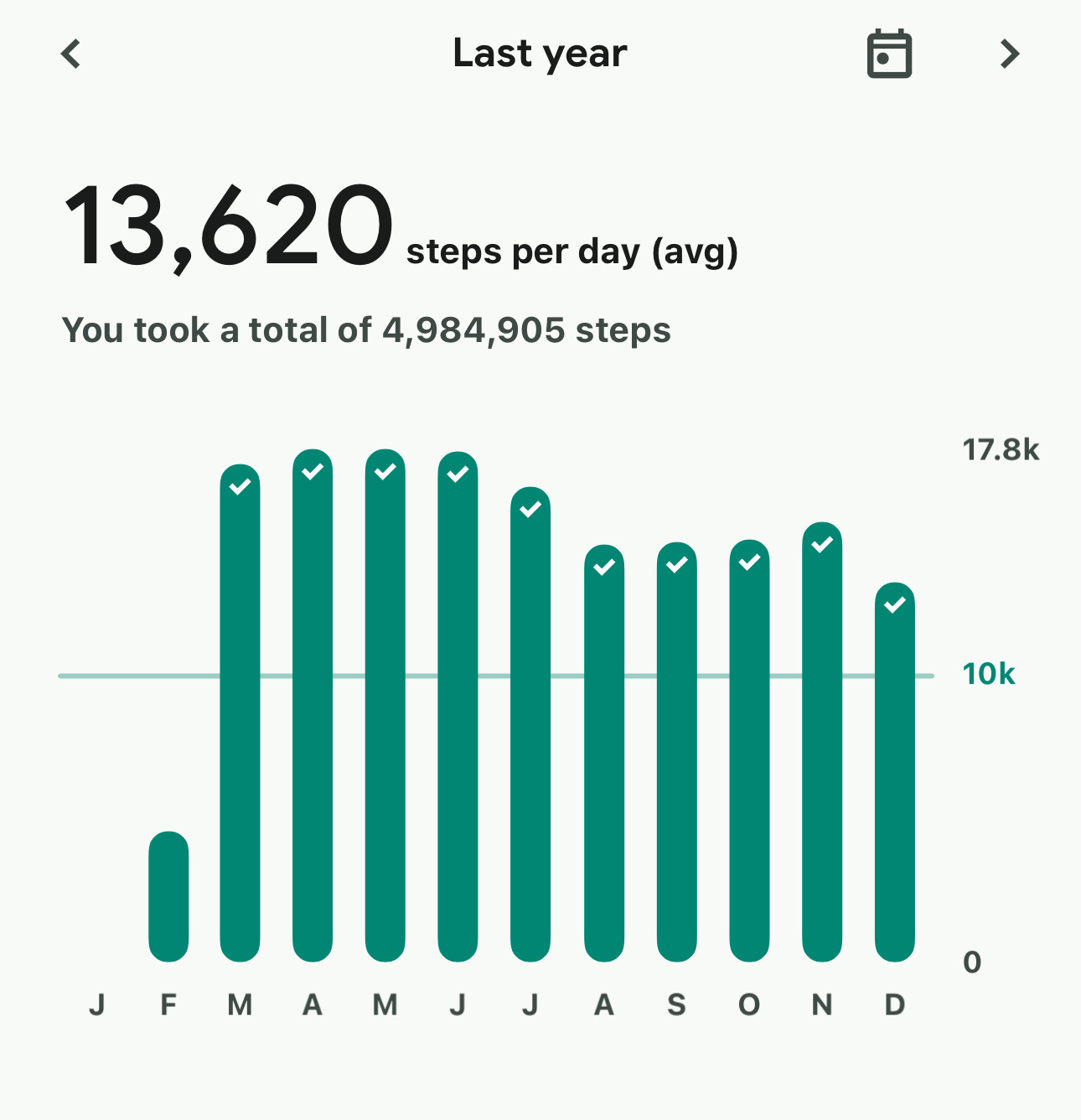Thomas here.
I have a challenge for you this year: make one meaningful change.
We do this every year anyway, whether consciously or unconsciously. We decide we want to eat healthier, work out more, grow our business, or improve our relationships. But how often are those changes effective for the long term?
Last year, I got into a serious health kick. That’s not new—I’ve had plenty of years where I’ve tried to make healthier choices. But what made the biggest difference this time? I tracked it.
For the first time, I wore a Fitbit on my wrist for an entire year. Instead of guessing how active I was, I had hard data. I knew when I was hitting my goals and when I wasn’t.
This year, if you want to make a real change, you need to track it—but there’s a caveat. The thing you track has to actually connect to your desired outcome.
Tracking the Right Thing
Here’s an example: say your goal is to look leaner. Most people default to tracking weight. But weight alone doesn’t tell the full story.
At the start of my fitness journey, I actually gained weight for the first four or five months. If I had only been tracking the number on the scale, I would have thought I was failing. But in reality, I was building muscle, shedding fat, and looking and feeling better than ever. My body fat percentage was dropping, but if I had only looked at my weight, I would have been discouraged.
The lesson?
Choose the right metric. If I wanted to look leaner, I needed to track body fat percentage—not just weight.
The Business Parallel
The same principle applies to business.
If you run a business and use social media for marketing, you might be tracking follower count. But does that actually drive your business outcomes?
Years ago, when Instagram was growing like crazy, a lot of bloggers abandoned their blogs in favor of Instagram because they were seeing rapid follower growth. But we didn’t. Why? Because our goal wasn’t just followers—it was clicks and sales.
We found that, despite Instagram’s rapid growth, our blog remained the best driver of clicks and purchases. If we had just chased the vanity metric of follower count, we might have lost sight of what actually worked for us.
First Principles Thinking
If you want to make a change—whether in health, business, or any part of life—you need to break the problem down to first principles:
What is your real goal?
What actually drives that outcome?
What is the best metric to track for real progress?
What actions are most effective at improving that metric?
Accountability: The Missing Piece
Want to supercharge your success? Tell someone your goal.
It sounds simple, but studies show that you’re far more likely to stick to something if you have someone keeping you accountable.
Here’s how to do it effectively:
Pick the right person – Someone who won’t let you off the hook but also won’t make you feel guilty. A friend, partner, or coach works well.
Be specific – “I want to work out more” is vague. “I want to hit 12 workouts this month” is concrete.
Set check-ins – A weekly text, a shared spreadsheet, or even a public post can help keep you on track.
Make it reciprocal – If they have a goal too, it becomes a two-way accountability system.
This isn’t about judgment—it’s about having a support system that keeps you honest.
Final Thought
Making changes is easy. Making the right changes—and making them last—is the real challenge.
So this year, if you want to improve something in your life, start by tracking the right thing.
Because what gets measured gets improved.
What’s one change you want to make this year?
And more importantly—how will you track it?







Love this, Thomas! My husband and I live by this mentality of tracking, measuring, reflecting, iterating…
And after nearly 15 years of marriage, it’s really cool to look back on our notes and see how far we’ve come.
After years of tracking personal wealth and business success, I’m adding my personal health to the list by wearing an oura ring and monitoring quarterly health metrics (weight, bp, body measurements, etc..). I was particularly inspired by Peter Attia’s Outlive.
How can I find someone to help with my business goals and/or can you recommend someone?